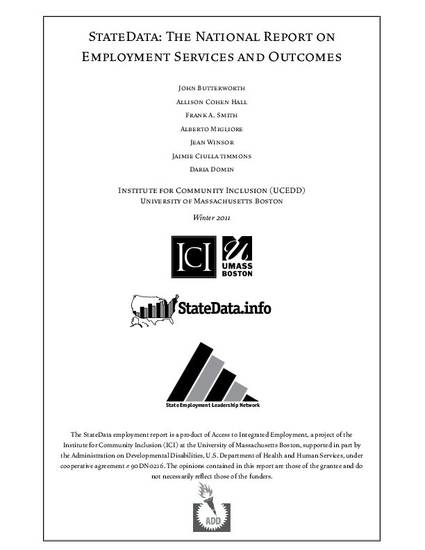
Policy shifts over the past 20 years have created an agenda for sustained commitment to integrated employment for individuals with disabilities. But despite these clear intentions, unemployment of individuals with disabilities continues to be a major public policy issue. Labor force statistics for December 2010 indicate that 28 percent of working-age adults with disabilities are employed, compared with 70 percent of people without disabilities. Labor force data also indicate that workers with disabilities have experienced significantly higher levels of job loss and hardship during the recession of the late 2000s. For people with intellectual and developmental disabilities (IDD), the disparity in labor market participation grows. In FY2003, only 26 percent of individuals with IDD supported by community rehabilitation providers (CRPs) worked in integrated jobs, including both individual jobs and group supported employment. At the same time, participation in sheltered or facility-based employment and non-work services has grown steadily, suggesting that employment services continue to be viewed as an add-on service rather than a systemic change.
States vary widely in their commitment to integrated employment. In recent years, state IDD agencies have launched employment working groups, employment initiatives, and employment-first policies and agendas. Effort is being reflected in some state-level outcome data; however nationally, only an estimated 20.3 percent of individuals receiving day supports from state IDD agencies participated in integrated employment services during FY2009. This number has slowly declined after reaching a peak of 25 percent of individuals in integrated employment in FY2001.
The StateData employment report is a product of Access to Integrated Employment, a project of the Institute for Community Inclusion (ICI) at the University of Massachusetts Boston, supported in part by the Administration on Developmental Disabilities, U.S. Department of Health and Human Services, under cooperative agreement #90DN0216. The opinions contained in this report are those of the grantee and do not necessarily reflect those of the funders.